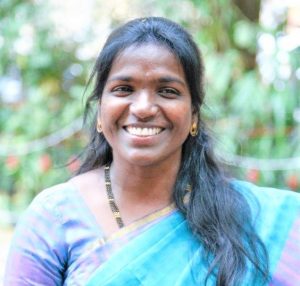CASA BLOGS
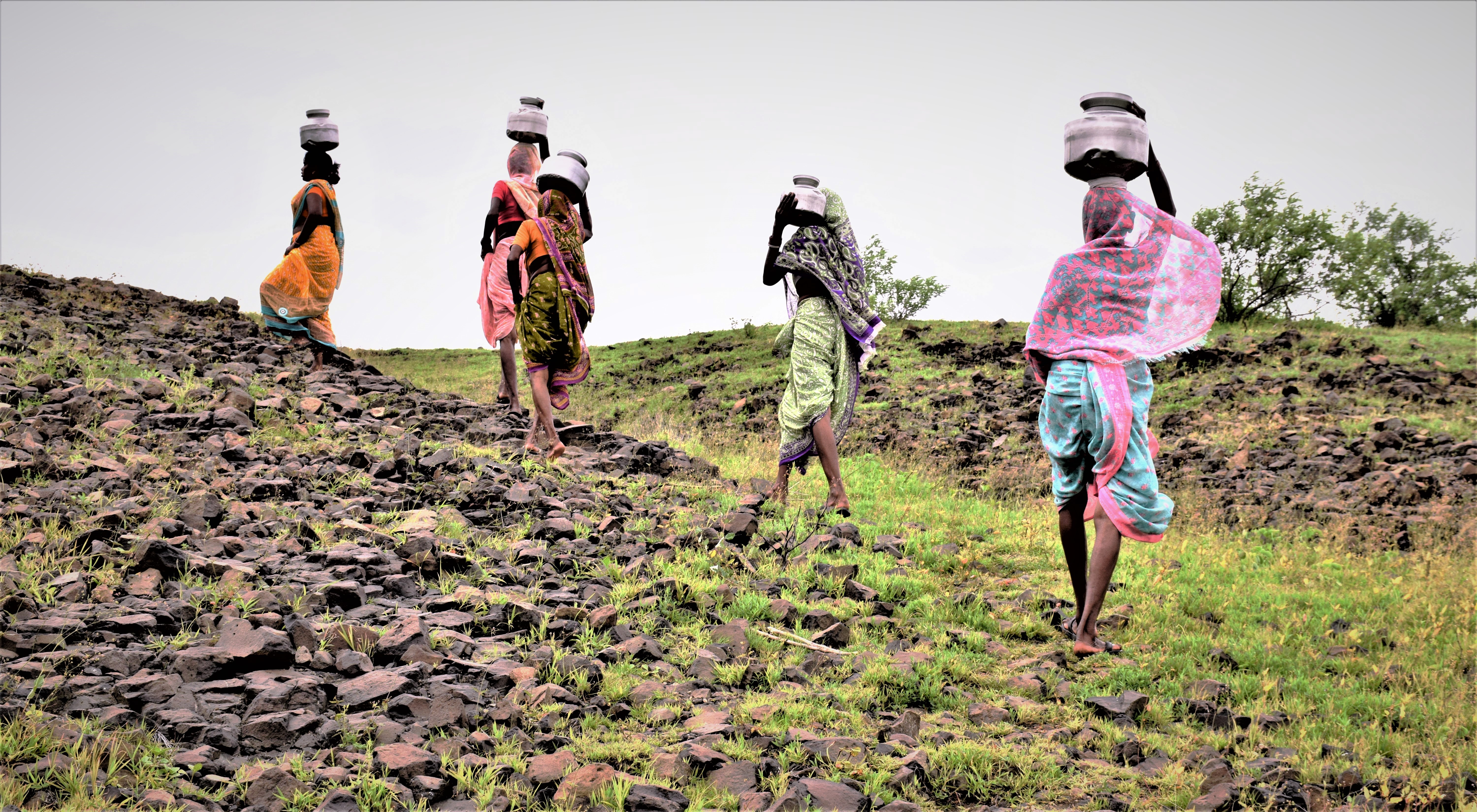
Have we thought about Women and Climate??
Have we thought about Women and climate??
“Women should be part of any agreement on climate change – not as an afterthought or because it’s politically correct, but because it’s the right thing to do” – Thoraya Ahmed Obaid, UNFPA Executive Director.
By Joycia Thorat
CASA Project Officer
Download Special Climate Change newsletter: Click Here
Climate change has put the entire universe into imminent risk. It poses significant threat to all of creation. The survival of people, communities, flora and fauna as well as fundamental human rights, are at risk and addressing the risks must be deliberate and holistic. The actions of the rich and powerful have made the poor and the weak suffer the brunt of Climate Change. Growth and capitalist development paradigm being a huge threat to the environment, new and alternative paradigm of inclusive development which is sustainable in nature has to be put in place at the earliest, as the just solution for Climate Change.
Climate change has a greater impact on those sections of the population, in all countries, that are most reliant on natural resources for their livelihoods and or who have the least capacity to respond to natural hazards such as droughts, landslides, floods, hurricane. Women commonly face higher risk and greater burdens from impacts of climate change in situations of poverty and the majority of the world’s poor are women.
Women’s unequal participation in decision making process and labour markets compound inequalities and often prevent women from fully contributing to climate related planning policy making and implementation, for too often women are subject to many society ills that results in lack of mobility lack of access to inputs and production and education resulting in limited business and professional opportunities. Subject to violence and are most impacted by climate change. Women administer sustainable resource management and lead sustainable practices at the household and community level.
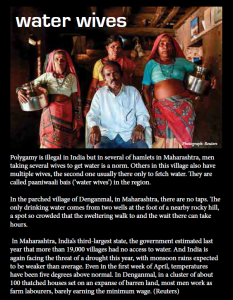
Economically and culturally, most Indian women are dependent on men and rarely have an independent source of livelihood or the ability to make decisions for the household. Climate change negatively affects the availability of resources, leading to situations that cause women to make sacrifices for their families. During periods of food shortage, women forego meals for the sake of their husbands and children and thus exposing themselves to malnutrition and other health risks, also increasing the vulnerability of their future children to premature birth and the inability to lactate.
Financial crises call for girl children to be withdrawn from schools and other educational institutions thus disallowing them from acquiring semi professional or professional skills or training so as to qualify for skilled labor. Thus, they are more likely to be married off early and undergo unwanted pregnancies which also contribute to perpetuating the cycle of depression and poverty. Increased population and decreasing resources compound the problem of climate change and thus it is imperative that girl children are given access to education to maintain small and stable families.
The lack of or access to the most basic resource – water, is an issue that is a direct result of the climate problem. Women in rural India are forced to walk for several miles to fetch water. The sanitation requirements of women take a backseat in face of the needs of men. Lack of proper sanitation facilities render women at a high risk of disease epidemics. Besides this, not being empowered with information to access resources during times of climate disasters is another pressing issue.
Climate disasters lead to loss of lives and property, large displacement, loss of livelihoods and lack of access to basic needs, as well as rise in violence and human rights violations. However, the impacts are more adverse on women than men, and particularly single women, women from Dalit, tribal, minority, landless and migrant households and women living with HIV or disability. Gendered power relations between men and women lead to greater abandonment, malnutrition, ill health, work load and livelihood losses of women than men, as well as heightened vulnerability to sexual abuse, trafficking and other forms of violence against women and girls. Transgender and women have lesser access to relief and rehabilitation or compensation for losses of their specific livelihoods. Access to toilets, bathing spaces and safe shelter are issues for transgender and inter-sexed people.
Where patriarchy is more deep-rooted, where female literacy and nutrition is already low where government law/policies are repressive for women the impact is worse.
Despite being severely affected by climate change, women are underrepresented at forums that discuss and decide policy to tackle climate change. Released on 10 November 2015, the UNESCO Science Report: towards 2030 observes that ‘women are not represented equally in the key climate-change related sectors of science as skilled workers, professionals or decision-makers. Although they are fairly well represented in some related science disciplines – including health, agriculture and environmental management – they are very much a minority in other fields that will be vital for the transition to sustainable development, such as energy, engineering, transportation, information technology (IT) and computing – the latter being important for warning systems, information-sharing and environmental monitoring.’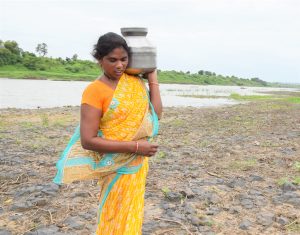
The role of women in mitigation measures should not be under-estimated. Developing countries have the potential to reduce or store greenhouse gases, particularly in areas in which women are already active. Thus providing energy for the household is usually a woman’s job and she often resorts to the energy-inefficient open burning of biomass, e.g., firewood.
The use of efficient energy systems at the household level (e.g., special cooking stoves and ovens) could reduce emissions and harness the potential of women as actors for mitigation measures. Women worldwide are also involved in natural resource and forest conservation. The forests supply women with vital products and are used not just to gather firewood, but also to obtain other raw materials, food or medicinal plants to provide for their families and to boost their income. The conservation and care of forests coupled with reforestation and afforestation for which women are responsible helps avoid the emissions caused by deforestation and leads to greater sequestration of greenhouse gases from the atmosphere. Women therefore contribute directly to climate mitigation. Given their significant role in mitigation and adaptation efforts, it is imperative that women be involved in the relevant measures.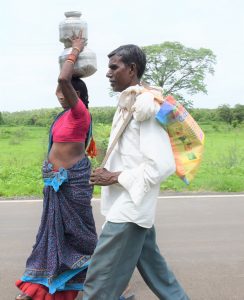
Under the Paris Agreement, gender equality and empowerment of women was acknowledged so that gender differences and inequalities are not only recognized but identified and addressed in a manner that provides for accountability (articles 7.5 and 11.2). We should recognize that women due to gender inequalities are disproportionally affected by long term climate change particularly in developing countries like India, where they are often more reliant on natural resources for their livelihoods. To avoid being overlooked and marginalized women therefore must be at the heart of the climate discussion at all levels of decision making from local level to UNFCCC negotiations as the global transition to renewable energy is progressed.
The actions which we need to take to make the Paris Agreement work is to prioritize capacity building, liasioning and coordinating with other streams and departments, using the expertise of women and women’s leadership and setting up responsible mechanisms and action plan. Working closely with country plan and contributing to country gender action plan is key to ensure that we achieve the goal.
 Previous Blog Post ‘It is not enough to adapt to the effects of climate change’
Previous Blog Post ‘It is not enough to adapt to the effects of climate change’Featured Post
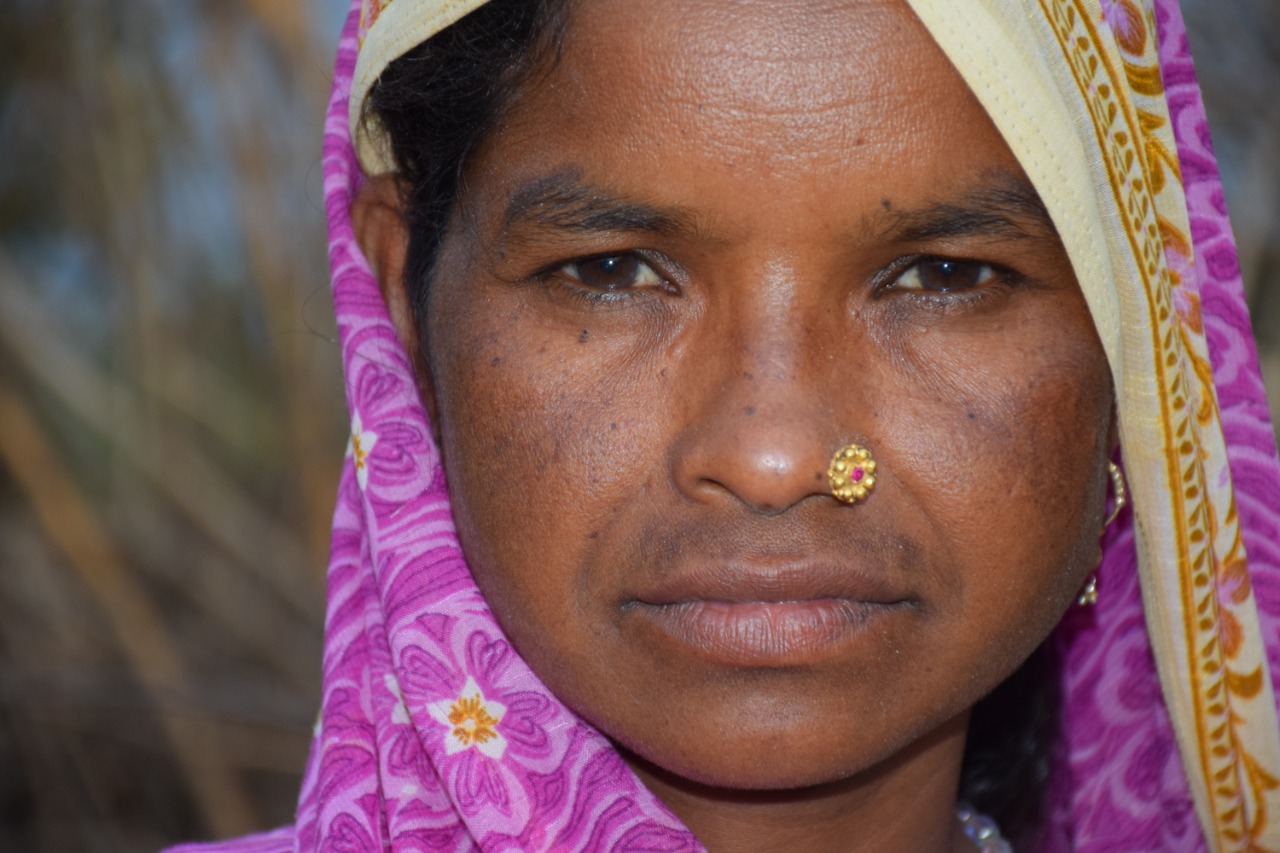
Mental Health Awareness in India: Addressing Key Challenges
8 Nov 2024
Mental health awareness is crucial in India, where millions silently struggle with mental health disorders, including depression, anxiety, and bipolar disorder. Despite growing recognition, India faces unique challenges in effectively addressing mental health issues. The stigma associated with mental illness remains a primary barrier. In Indian society, mental health issues are often misunderstood, leading to […]

Ensuring Girls’ Safety in India: A Path Toward Empowerment
20 Aug 2024
Girls’ safety in India remains a critical issue that has garnered increasing attention over the years. Despite various reforms and efforts from both government and civil society, challenges persist. From street harassment to domestic violence, gender-based discrimination continues to limit the freedom and safety of girls. While significant progress has been made in addressing these […]
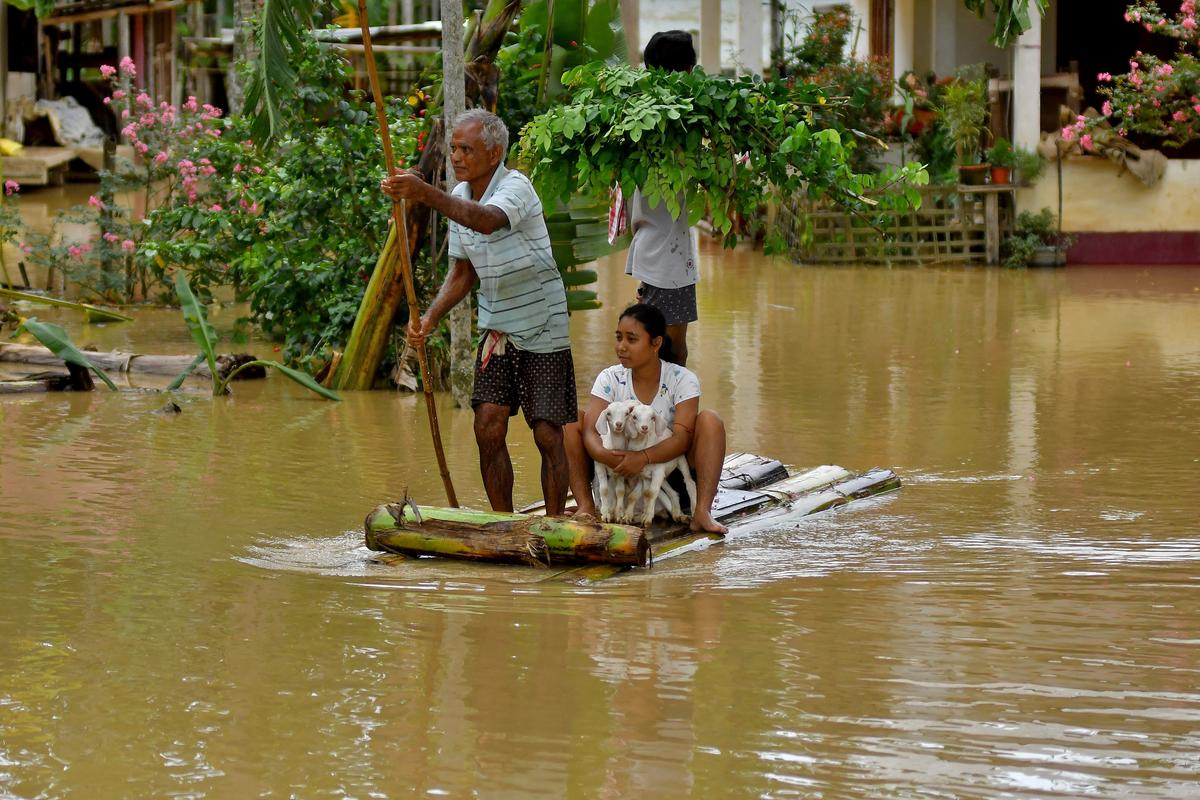
The Connection Between Monsoons and Floods in India: An In-Depth Analysis
9 Jul 2024
India, a land of diverse climates and geographical features, relies heavily on the monsoon season for its agricultural and water resources. However, with the benefits of the monsoon rains come significant challenges, particularly in the form of floods. This blog explores the intricate relationship between the monsoon season and flooding in India, providing detailed insights […]


